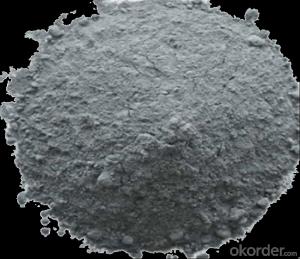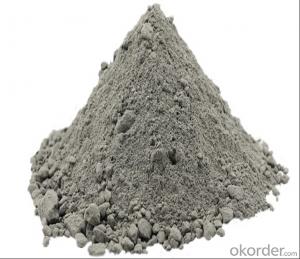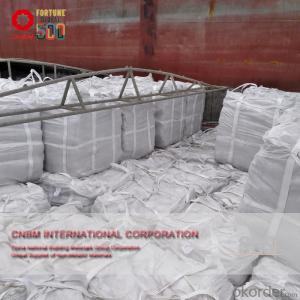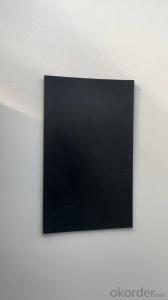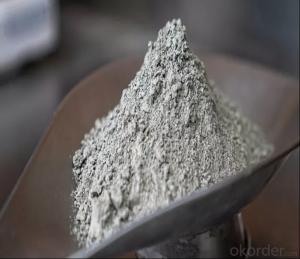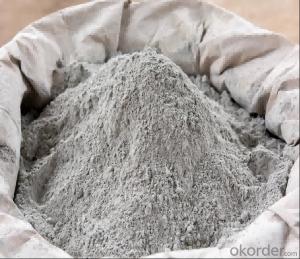SBS-Modified Bitumen Waterproof Membrane with Polyester Fiber and PE Film
- Loading Port:
- Tianjin
- Payment Terms:
- TT OR LC
- Min Order Qty:
- 1000 m²
- Supply Capability:
- 500000 m²/month
OKorder Service Pledge
OKorder Financial Service
You Might Also Like
SBS-PYPE is a waterproofing modified bitumen base sheet consisting of styrene-butadiene-styrene (SBS) modified asphalt reinforced with polyester fiber covering with polyethylene surfacing. There have two kinds of thickness: 3 mm, 4 mm。
We have two kinds of type in our company。They are I type and II type。They have differentt kinds of low temperature flexibility。
This type is 3mm thickness,type I。
If you want to know more about us,call the salesman of CNBM International Corporation (CNBM International) 。
CNBM INTERNATIONAL CORPORATION
Address:17th Floor, NO.4 Building, Zhuyu Business Center, Shouti South Road,Haidian District, Beijing,China
Post Code:100048
Tel:(86-10)68796888
Fax:(86-10) 68796668
Email:marketing@okorder.com, hr@okorder.com
- Q:Can a waterproofing membrane be used for shower or bathroom installations?
- Yes, a waterproofing membrane can be used for shower or bathroom installations. The membrane acts as a protective barrier, preventing water from penetrating through the walls or floor and causing damage. It is commonly used in wet areas like showers and bathrooms to ensure a waterproof seal and to maintain the integrity of the surrounding surfaces.
- Q:Can waterproofing membranes be used on roofs?
- Yes, waterproofing membranes can be used on roofs. These membranes are designed to provide a barrier against water infiltration, protecting the roof structure and preventing leaks. They are commonly used in various types of roofs, including flat roofs, low-slope roofs, and even sloped roofs in certain cases. Waterproofing membranes offer excellent durability and flexibility, making them an effective solution for roof waterproofing.
- Q:Can a waterproofing membrane be used on precast zinc surfaces?
- Precast zinc surfaces can indeed benefit from the use of a waterproofing membrane. These membranes are specifically designed to safeguard various surface types against water infiltration, including concrete, metal, and zinc. By creating a protective barrier, these membranes effectively prevent water from permeating the surface. This is especially crucial for precast zinc surfaces that are prone to exposure to moisture or water. The application of a waterproofing membrane to such surfaces can effectively extend their lifespan and shield them against potential water-induced damage, such as corrosion or deterioration. Therefore, it is essential to carefully choose a waterproofing membrane that is compatible with zinc and meticulously adhere to the manufacturer's instructions regarding proper application and maintenance.
- Q:Can a waterproofing membrane be used in areas with high humidity and moisture?
- Yes, a waterproofing membrane can be used in areas with high humidity and moisture. The purpose of a waterproofing membrane is to provide a protective barrier against water and moisture, making it suitable for such environments. It helps prevent water infiltration, mold growth, and damage caused by excessive moisture, making it an ideal solution for humid and moisture-prone areas.
- Q:Can a waterproofing membrane be used for underground stormwater detention systems?
- Yes, a waterproofing membrane can be used for underground stormwater detention systems. A waterproofing membrane is designed to prevent the penetration of water and can be applied to various surfaces, including concrete, to create a watertight barrier. This makes it an ideal solution for underground stormwater detention systems that require the containment and control of stormwater runoff. The waterproofing membrane ensures that the system remains watertight, preventing any leaks or seepage that could compromise the integrity of the system or contaminate the surrounding soil and groundwater. Additionally, the membrane can also help to protect the concrete structure of the detention system from the corrosive effects of water and other potential contaminants. Therefore, using a waterproofing membrane in underground stormwater detention systems is a reliable and effective way to ensure their functionality and longevity.
- Q:Can a waterproofing membrane be used on swimming pools?
- Yes, a waterproofing membrane can be used on swimming pools. In fact, it is a common and effective method for ensuring the pool remains watertight. Waterproofing membranes are typically made of materials such as PVC or rubber and are specifically designed to prevent water from seeping through the walls or floor of the pool. These membranes are applied as a thin layer or sheet over the pool's surfaces, creating a barrier that keeps water contained within the pool. This helps to minimize the risk of leaks and water damage, ensuring the longevity and functionality of the swimming pool.
- Q:Can a waterproofing membrane be used in roofs?
- Roofs can indeed benefit from the use of a waterproofing membrane. It's a widely employed technique for safeguarding roofs against water-related harm. Typically composed of robust materials like rubber or modified bitumen, this membrane is applied to the roof's surface to establish a barrier that prevents water from seeping through. As a result, leaks and potential damage are averted, as this protective layer stops water from penetrating the roof's underlying structure. Waterproofing membranes are particularly advantageous for flat or low-sloped roofs, where water accumulation is prone to causing issues. Moreover, these versatile membranes can be utilized on diverse roofing materials, including concrete, metal, and asphalt, making them suitable for various roof types. Overall, incorporating a waterproofing membrane into roofs effectively enhances their durability and longevity, while ensuring dependable protection against water infiltration.
- Q:Can a waterproofing membrane be used on tunnels with historical significance?
- Yes, a waterproofing membrane can be used on tunnels with historical significance. The membrane can help protect the tunnel from water damage and prevent further deterioration, ensuring the preservation of its historical significance.
- Q:Can a waterproofing membrane be used on terrazzo surfaces?
- Terrazzo surfaces can indeed benefit from the application of a waterproofing membrane. Terrazzo, a strong and adaptable flooring material composed of marble, granite, quartz, or glass chips mixed with cementitious or epoxy matrix, has a moderate resistance to water. However, it is not entirely impervious and can absorb moisture if not treated. To safeguard against water damage, staining, and discoloration, it is recommended to apply a waterproofing membrane on terrazzo surfaces. The membrane functions as a barrier, effectively preventing water and other liquids from penetrating the terrazzo, thereby enhancing its durability and maintaining its aesthetic appeal. To ensure optimal effectiveness, it is crucial to choose a waterproofing membrane that is compatible with the terrazzo material and follow the manufacturer's instructions during application.
- Q:Can a waterproofing membrane be used on precast chrome surfaces?
- Indeed, precast chrome surfaces can be safeguarded by employing a waterproofing membrane. These membranes are frequently utilized to shield surfaces against water harm and hinder moisture from infiltrating the structure. In addition, the application of a waterproofing membrane on precast chrome surfaces can prove advantageous by guaranteeing their endurance and robustness. By creating a barrier between the surface and any potential water infiltration, the membrane effectively safeguards the precast chrome, sustaining its aesthetic appeal and functionality. It is crucial to select a waterproofing membrane that is harmonious with chrome surfaces and adhere to the manufacturer's guidelines for accurate application.
1. Manufacturer Overview |
|
|---|---|
| Location | |
| Year Established | |
| Annual Output Value | |
| Main Markets | |
| Company Certifications | |
2. Manufacturer Certificates |
|
|---|---|
| a) Certification Name | |
| Range | |
| Reference | |
| Validity Period | |
3. Manufacturer Capability |
|
|---|---|
| a)Trade Capacity | |
| Nearest Port | |
| Export Percentage | |
| No.of Employees in Trade Department | |
| Language Spoken: | |
| b)Factory Information | |
| Factory Size: | |
| No. of Production Lines | |
| Contract Manufacturing | |
| Product Price Range | |
Send your message to us
SBS-Modified Bitumen Waterproof Membrane with Polyester Fiber and PE Film
- Loading Port:
- Tianjin
- Payment Terms:
- TT OR LC
- Min Order Qty:
- 1000 m²
- Supply Capability:
- 500000 m²/month
OKorder Service Pledge
OKorder Financial Service
Similar products
New products
Hot products
Related keywords













